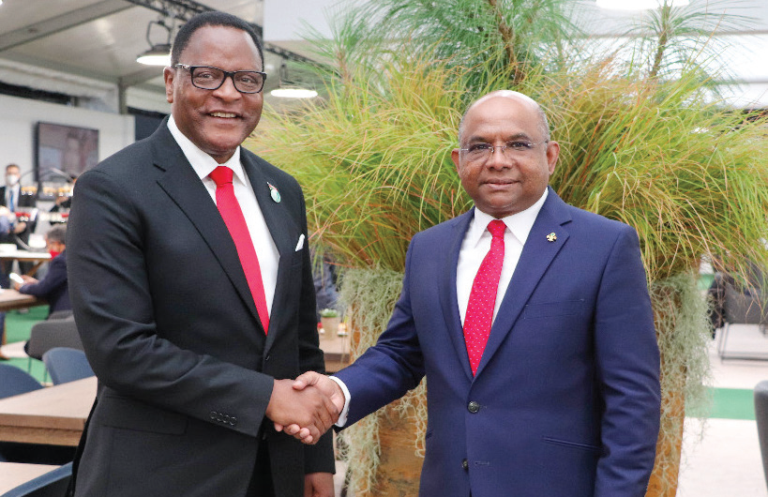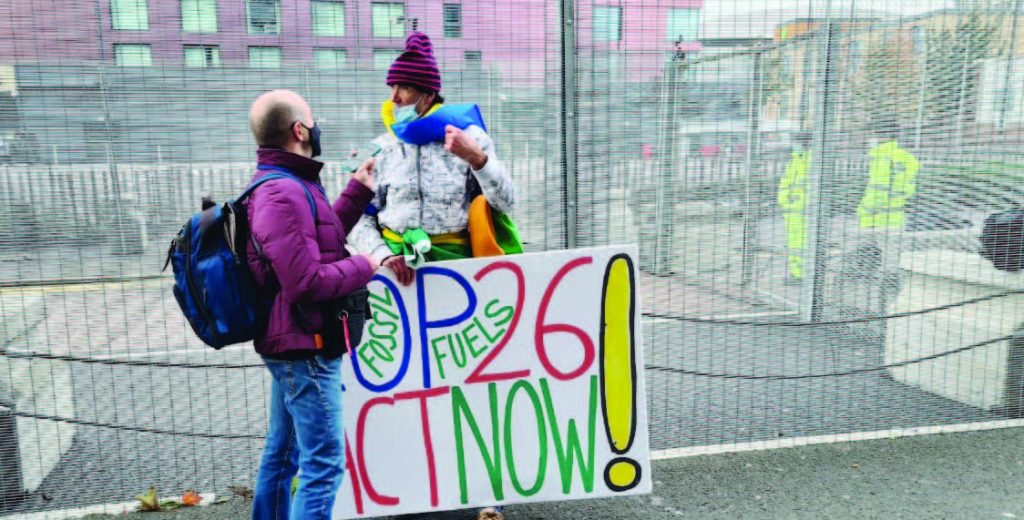Chakwera talks tough on climate
President Lazarus Chakwera on Monday dived into climate change talks in Scotland with a call to rich countries to meet their financial and emissions cuts commitments, including $100 billion (about K81 trillion) commitment to poor nations six years ago.
Speaking at the World Leaders’ Summit of the 26th Conference of the Parties (CoP26), the President said it is only when concrete action and progress are seen that people in various countries, including Malawi, can begin to believe in this annual United Nations Climate Change gathering.

Said Chakwera: “When the nations we lead ask what exactly is the point of this conference, what they are really asking is this: What is the point of having you at the CoP on our behalf?”
He said the leaders gathered in Glasgow must answer the people with binding commitments to cut emissions to zero, urgent disbursement of committed funds and elimination of toxic debts that strangle poor nations’ ability to fight climate change.
Chakwera, who last week in Dubai said Malawi needs $2.3 billion (nearly K1.9 trillion) annually to reduce emissions and cope with climate change effects, said rich countries must honour the $100 billion annual commitment to poor countries they made in Paris six years ago.
“There must be immediate disbursement of the money pledged to Least Developed Countries [LDCs] by developed countries, which is not a donation, but a cleaning fee,” he said.

LDCs, comprising 46 countries representing around one billion people at the conference, are among the worst hit by climate change effects despite contributing little to the causes.
The CoP26 Summit, which started on Sunday and closes on November 12, is touted as the defining event for realising the dream of limiting global warming to less than 1.5 degrees Celsius.
If the rise in temperatures is not limited to the prescribed mark, scientists say the globe’s future could be swallowed by storms, floods, fires and heat waves.
Chakwera brought this scenario closer home when he invoked memories of Cyclone Idai that devastated Malawi, Mozambique and Zimbabwe in 2019 and from which the trio is yet to recover.
Yet, it remains unclear if the more than 200 countries meeting in Scotland will summon themselves to endure the economic and political fallout that will come with the introduction of tough measures meant to bring drastic cuts to emissions to keep the 1.5 degrees Celsius agenda alive.
The ongoing blame game is not helping matters either.
While rich nations blame rising industrial powers such as China, India and Indonesia for doing little to slash emissions, the trio and other poor or developing nations say the rich and heavily industrialised Western countries are not doing enough to sharply cut gushing greenhouse gases.
Developing countries also argue that the West is not helping poor countries with the funds needed to fight climate change effects and help them rein in their own emissions.
With rich countries failing to meet their $100 billion commitment to poor countries annually as agreed in the Paris Accord, poor countries are reticent about their own emissions cuts efforts.
But there are signs that despite the differences, there is still some momentum.
For example, the just ended G20 meeting in Rome pushed hard for a deal to phase out coal and enforce policies that would put the 1.5 degrees Celsius agenda front and centre.
Here in Glasgow, the United Kingdom and the European Union are backing an intense lobby from vulnerable countries for a deal that would bend nations towards the Paris Agreement targets.






One Comment